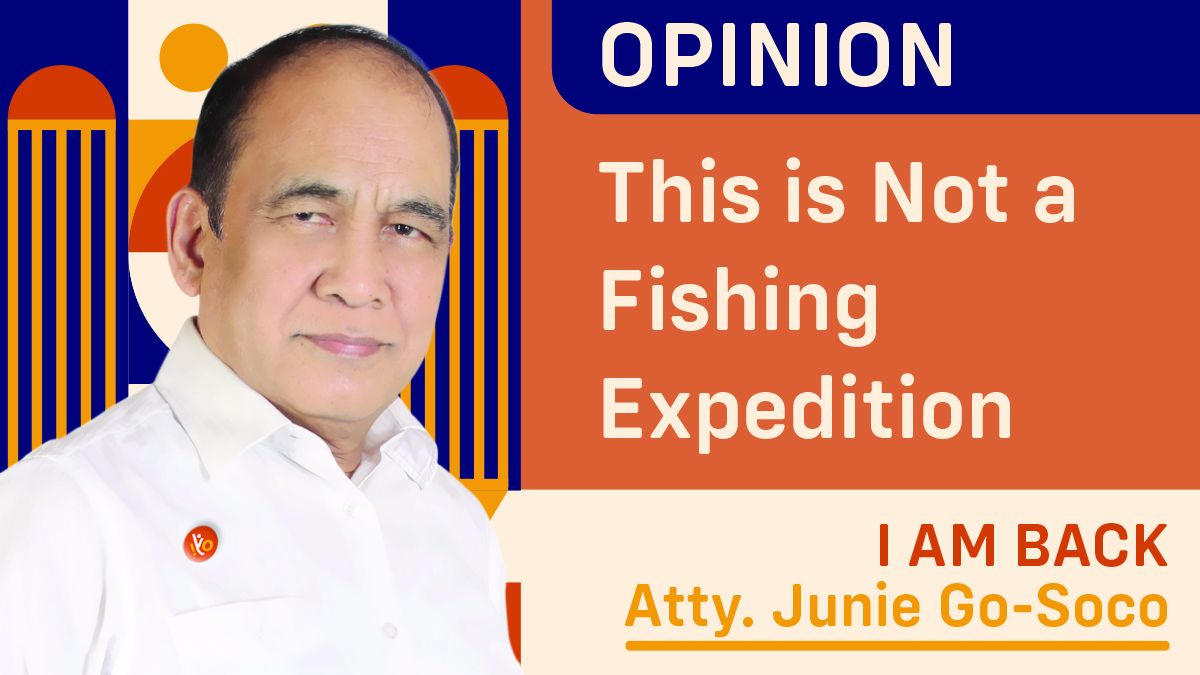This is not a fishing expedition, but I smell something fishy.
The International Fund for Agricultural Development (IFAD) implemented livelihood projects which were recently subjected to an analysis of impact on target benefits. The project, with a cost of 2 billion pesos, is called FishCORAL. It covered four regions, including Eastern Visayas. IFAD invests in rural people, empowering them to increase their food security, improve the nutrition of their families, and increase their incomes.
Time and again I have commented on large projects costing billions of pesos. This time the comment is something different in terms of the treatment of monitoring and the focus of the project
Conventional monitoring is largely confined to tracking of project accomplishments like the length of the road, the resulting increase in agricultural production, and the increase in the number of beneficiaries. The use of funds is also monitored such as slippage in construction and the consequent time delays.
The concern for this type of monitoring is well-placed. We need to keep track of what is going on in these projects. But there is a concern that goes beyond such targets and accomplishments. This is on the impact of the project on the people affected. Government must also look beyond the traditional measurements and indicators of success. This is impact evaluation. And this is what the NEDA and the RDC Impact Evaluation of the FishCORAL project are trying to do.
Enter: The Capacity Development and Impact Evaluation Project focused on the fishery sector, with funding from the United Nations
Development Program. NEDA presented the preliminary results of the study in the July 19, 2024 meeting of the RDC. NEDA stressed that the result is still preliminary. There could be changes later. I wonder what these changes will be.
Data gathering for this project revealed the inability of fisherfolk to improve their households' income despite the implementation of projects such as fish culture, fish processing, and lobster production. To elaborate, this study pointed out the inability of the livelihood projects funded by IFAD to improve significantly the economic and social well-being of the fisherfolk. In effect, the project did not matter at all.
In other words, the FishCORAL project did not achieve the Project’s twin objective of increasing household income by 10 percent and reducing poverty.
To me, that is spending 2 billion pesos for nothing. With or without the project, the situation is the same: No significant improvement.
Now, that is an important finding. I admire the research team for being candid. Being truthful is the kind of quality funding institutions are looking for. The succeeding phase, if there is one, should address the reasons for the failure of these livelihood projects.
Data from the Philippine Statistics Agency corroborate this by showing a declining trend in fish production.
The dismal performance of the fishery industry should be a cause of concern. Maybe those are even kind words. Better would be the statement that the agencies mandated by law and staffed by employees are not doing their jobs properly. They must do something impactful soon and make life better for the fisherfolk and for those who consume their produce.
What the study provides is empirical data useful in evidence-based planning. Again, the data are there and speak for themselves. This is not a fishing expedition. Should heads roll?
Because the project caught the fish?
#WeTakeAStand #OpinYon #OpinYonColumn #ColumnbyAttyJunieGoSoco #IAmBack #IFAD #NEDA
